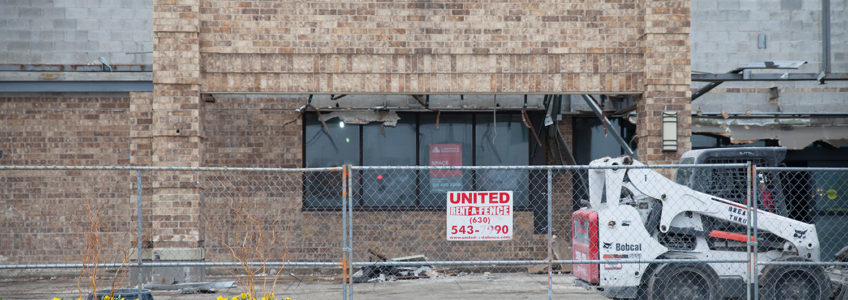
Construction management plays a crucial role in successfully completing any construction project. It involves overseeing and coordinating various aspects of the project, from planning and budgeting to scheduling and quality control. Projects can face numerous challenges and setbacks without effective construction management, leading to delays, cost overruns, and even legal issues. To ensure success in construction management, focus on critical areas such as proper planning, effective communication, technology integration, hiring the right team, budgeting and cost control, proactive risk management, maintaining quality control, timely project scheduling, compliance with building codes and regulations, and continuous learning and improvement.
Importance of Proper Planning: Avoiding Construction Management Mistakes from the Start
Proper planning is the foundation for a successful construction project. It involves carefully considering all aspects of the project, including budgeting, scheduling, resource allocation, and coordination. By taking the time to plan effectively, construction managers can avoid common mistakes that can lead to costly delays and errors.
One common mistake that can be avoided through proper planning is inadequate budgeting. With a thorough understanding of the project’s financial requirements, construction managers may understand costs and allocate funds appropriately. This can lead to cost overruns and financial strain on the project.
Another mistake that can be avoided through proper planning is poor scheduling. Construction projects involve multiple tasks that must be completed in a specific order. Without a well-planned schedule, duties may overlap or be delayed, causing the overall project timeline delays.
Lack of coordination is another common mistake that can be avoided through proper planning. Construction projects involve multiple stakeholders, including architects, engineers, contractors, and subcontractors. Conflicts may arise without effective coordination and communication among these stakeholders, leading to delays and errors.
Effective Communication: Key to Successful Construction Management
Effective communication is crucial in construction management as it ensures all stakeholders are on the same page and working towards a common goal. It involves clear and open lines of communication, regular meetings, and precise documentation.
Regular meetings allow construction managers to communicate project updates, address any concerns or issues, and ensure everyone knows their responsibilities. These meetings also allow stakeholders to ask questions and seek clarification, promoting a collaborative and efficient work environment.
Clear documentation is also essential in construction management. It helps to ensure that all project details, including plans, specifications, and contracts, are appropriately recorded and easily accessible to all stakeholders. This reduces the risk of miscommunication or misunderstandings and provides a reference point for future decision-making.
Open lines of communication encourage collaboration and problem-solving among stakeholders. By fostering an environment where everyone can communicate their ideas and concerns, construction managers can address issues promptly and find solutions more effectively.
The Role of Technology in Streamlining Construction Management Processes
Technology has revolutionized the construction industry by improving efficiency and productivity in construction management. Various technologies can be used to streamline processes and enhance communication among stakeholders.
Project management software is one technology that has become increasingly popular in construction management. It allows construction managers to track project progress, manage schedules, allocate resources, and communicate with stakeholders in real time. This software also provides a centralized platform for storing project documents and data, making it easily accessible to all team members.
Drones are another technology that has been widely adopted in construction management. They can survey construction sites, monitor progress, and capture aerial images or videos for documentation. Drones provide a cost-effective and efficient way to gather data and monitor project performance.
Virtual reality (VR) is also used in construction management to enhance visualization and planning. VR technology allows stakeholders to experience a virtual representation of the project before it is built, helping to identify potential design flaws or conflicts early on. This technology also enables stakeholders to make informed decisions about design choices and materials.
Hiring the Right Team: Avoiding Costly Mistakes in Construction Management
Hiring the right team is essential for the success of any construction project. The team should consist of skilled and experienced professionals who can effectively carry out their roles and responsibilities.
One strategy for hiring the right team is conducting thorough interviews. This allows construction managers to assess candidates’ skills, experience, and qualifications. It also provides an opportunity to evaluate their communication and problem-solving abilities, which are crucial in construction management.
Checking references is another crucial step in hiring the right team. Construction managers can gain insights into a candidate’s work ethic, reliability, and performance by contacting previous employers or clients. This helps to ensure that the selected team members have a track record of success and can contribute positively to the project.
Considering past experience is also essential when hiring the right team. Construction managers should look for candidates who have worked on similar projects or have experience in a specific industry. This ensures that team members are familiar with the challenges and requirements of the project, reducing the risk of errors or delays.
Budgeting and Cost Control: Essential Strategies for Construction Management Success
Proper budgeting and cost control are crucial for financially keeping a construction project on track. Construction managers must accurately estimate costs, monitor expenses regularly, and implement proactive cost-saving measures.
Accurate cost estimation is the first step in effective budgeting and cost control. Construction managers should carefully analyze all project requirements, including materials, labor, equipment, and overhead costs. Considering all potential expenses upfront, they can develop a realistic budget for unforeseen circumstances.
Regularly monitoring expenses is essential to ensure the project stays within budget. Construction managers should track costs throughout the project’s duration and compare them to the estimated budget. This allows them to identify discrepancies or areas where costs can be reduced.
Proactive cost-saving measures can help construction managers stay within budget and avoid unnecessary expenses. This can include negotiating better prices with suppliers, optimizing resource allocation, and implementing energy-efficient practices. Construction managers can maximize the project’s financial resources by actively seeking cost-saving opportunities.
Proactive Risk Management: Minimizing Construction Management Challenges
Proactive risk management is crucial in construction management to minimize potential challenges and issues. It involves identifying and assessing risks, developing contingency plans, and implementing safety measures.
Identifying and assessing risks is the first step in proactive risk management. Construction managers should thoroughly analyze the project’s potential risks, including safety hazards, environmental factors, and external influences. By understanding the risks upfront, they can develop strategies to mitigate or eliminate them.
Developing contingency plans is another important aspect of proactive risk management. Construction managers should have backup plans for potential risks during the project. This ensures they can respond quickly and effectively to unforeseen circumstances, minimizing the impact on the project’s timeline and budget.
Implementing safety measures is essential for proactive risk management in construction management. Construction sites are inherently dangerous environments, and it is necessary to prioritize the safety of all workers and stakeholders. This can include providing proper training, enforcing safety protocols, and conducting regular inspections to identify and address any safety hazards.
Maintaining Quality Control: Preventing Construction Management Errors
Quality control is essential for ensuring a construction project meets the required standards. It involves regular inspections, quality assurance processes, and adherence to industry standards.
Regular inspections are an essential part of maintaining quality control in construction management. Construction managers should inspect various project stages to ensure work is carried out according to specifications and industry standards. This helps identify errors or deficiencies early on, allowing prompt corrective action.
Quality assurance processes should be implemented throughout the project to ensure that all work meets the required standards. This can include conducting regular audits, reviewing documentation, and performing tests or inspections. By consistently monitoring quality, construction managers can identify issues and take corrective measures to maintain the project’s integrity.
Adherence to industry standards is crucial in maintaining quality control. Construction managers should stay updated on the latest regulations and requirements in the construction industry and ensure that all work complies with these standards. This helps prevent legal issues and ensures the project meets the necessary safety and quality standards.
Timely Project Scheduling: Avoiding Delays in Construction Management
Timely project scheduling is crucial for completing a construction project on time. It involves creating realistic timelines, setting clear milestones, and regularly monitoring progress.
Creating realistic timelines is the first step in effective project scheduling. When developing a schedule, construction managers should consider all project requirements, including tasks, resources, and potential risks. By setting achievable deadlines, they can avoid unnecessary pressure on the team and reduce the risk of delays.
Setting clear milestones helps track progress and ensure the project stays on schedule. Construction managers should break the project into smaller tasks or phases and set specific deadlines for each milestone. This provides a clear roadmap for the team and allows for regular progress monitoring.
Regularly monitoring progress is essential to identify potential delays or issues early on. Construction managers should track the completion of tasks, compare them to the schedule, and address any discrepancies promptly. This allows them to take corrective action or adjust the plan to keep the project on track.
Compliance with Building Codes and Regulations: Preventing Legal Issues in Construction Management
Compliance with building codes and regulations is key for avoiding legal issues in construction management. Construction managers must stay updated on rules, obtain necessary permits, and conduct regular inspections to ensure compliance.
Staying updated on regulations is crucial in construction management, as building codes and regulations constantly evolve. Construction managers should regularly review local, state, and federal regulations to ensure the project meets all requirements. This includes understanding zoning laws, safety regulations, and environmental standards.
Obtaining necessary permits is another critical aspect of compliance in construction management. Construction managers should identify all required licenses for the project, such as building permits, environmental permits, or occupancy permits, and ensure they are obtained before starting any work. Please get the necessary permits to avoid costly fines or legal issues.
Regular inspections are essential to ensure ongoing compliance with building codes and regulations. Construction managers should schedule inspections at various project stages to verify that work is carried out according to specifications and industry standards. This helps to identify any non-compliance issues early on and allows for prompt corrective action.
Continuous Learning and Improvement: Strategies for Long-Term Construction Management Success
Continuous learning and improvement are essential for long-term success in construction management. It involves attending industry conferences, staying updated on industry trends, and seeking stakeholder feedback.
Attending industry conferences and seminars allows construction managers to learn from industry experts, gain insights into new technologies or practices, and network with other professionals. By staying informed about the latest trends and developments in the construction industry, construction managers can adapt their strategies and stay ahead of the competition.
Staying updated on industry trends also involves:
- Regularly reading industry publications.
- Participating in online forums or communities.
- Engaging in professional development activities.
This helps construction managers stay informed about best practices, emerging technologies, and regulatory changes that may impact their projects.
Seeking feedback from stakeholders is another important aspect of continuous learning and improvement. Construction managers should actively seek feedback from clients, contractors, and team members to identify areas for improvement. This feedback can refine processes, address concerns or issues, and enhance overall project performance.
Conclusion
In conclusion, proper planning, effective communication, technology integration, hiring the right team, budgeting, and cost control, proactive risk management, maintaining quality control, timely project scheduling, compliance with building codes and regulations, and continuous learning and improvement are all essential for construction management success. By focusing on these critical areas, construction managers can minimize risks, avoid costly mistakes, and ensure the successful completion of construction projects. Construction managers must implement these strategies in their projects to achieve long-term success in the industry.






